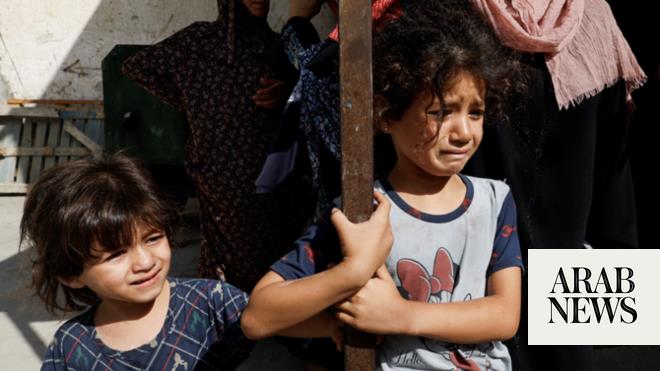
Amnesty International has joined other leading human rights groups in stating that Israel’s “system of oppression and domination” over the Palestinians amounts to the international definition of apartheid.
The report immediately prompted fury among Israeli politicians who called for it to be withdrawn.
Among them was Israel’s foreign minister, Yair Lapid, who rejected the report as “divorced from reality”, saying: “Amnesty quotes lies spread by terrorist organisations.”
Lapid also accused Amnesty of antisemitism. “I hate to use the argument that if Israel were not a Jewish state, nobody in Amnesty would dare argue against it, but in this case, there is no other possibility,” Lapid said.
The report was welcomed, however, by the Palestinian Authority, which said it hoped it would open the way to prosecution of Israel at the international criminal court.
“The state of Palestine welcomes the report by Amnesty International on Israel’s apartheid regime and racist policies and practices against the Palestinian people,” the authority’s foreign affairs ministry said.
Amnesty called on “the USA, the European Union and its member states and the UK, but also those states that are in the process of strengthening their ties – such as some Arab and African states [to] recognise that Israel is committing the crime of apartheid and other international crimes”.
It asked countries to “use all political and diplomatic tools to ensure Israeli authorities implement the recommendations outlined in this report and review any cooperation and activities with Israel to ensure that these do not contribute to maintaining the system of apartheid.”.
The 278-page report compiled over a period of four years by the London-based rights group means that Amnesty has joined the ranks of Human Rights Watch and the Israeli rights group B’Tselem who have also accused Israel of apartheid in the last year.
“Whether they live in Gaza, East Jerusalem and the rest of the West Bank, or Israel itself, Palestinians are treated as an inferior racial group and systematically deprived of their rights,” Amnesty’s secretary general, Agnès Callamard, said while introducing the report, as she rejected claims of antisemitism. “Israel’s cruel policies of segregation, dispossession and exclusion across all territories under its control clearly amount to apartheid.”
While in the past much of the focus of claims of Israeli apartheid has focused on conditions in Palestinian areas seized by Israel during the six day war in 1967, including the West Bank where dual systems of rights and legal administrations exist for Palestinians and Jewish settlers, allegations of apartheid within Israel are more controversial.
A year ago, B’Tselem drew criticism from Israeli politicians when it asserted that Israeli policies had been designed to enforce “Jewish supremacy from the Jordan River to the Mediterranean Sea”.
The New York-based Human Rights Watch in April last year became the first significant international rights group to publicly level the allegation of apartheid, part of a growing international movement to redefine the Israeli-Palestinian conflict as a struggle for equal rights rather than a territorial dispute.
Those efforts have gained strength in the decade since the peace process ground to a halt, as Israel has consolidated its control over the occupied territories and soured on the idea of a Palestinian state.
Israel rejects any allegation of apartheid and insists that its own Arab citizens enjoy equal rights.
Complicating the issue is the different experiences of Palestinians in the occupied territories compared with Palestinian citizens of Israel.
While Palestinians who remained inside Israel lived under military rule until shortly before the 1967 war, those Palestinians now have citizenship, including the right to vote, but still face widespread discrimination in areas such as the job and housing markets.
Palestinians in the West Bank live – despite a degree of political autonomy – under Israeli military rule, which includes exposure to the Israeli military justice system, while Jewish settlers on the West Bank are dealt with under Israeli civil law.
For their part, those living in Hamas-ruled Gaza – from which Israel withdrew in 2005 while keeping tight control of land and the maritime border – also face a crippling Israeli and Egyptian blockade.










